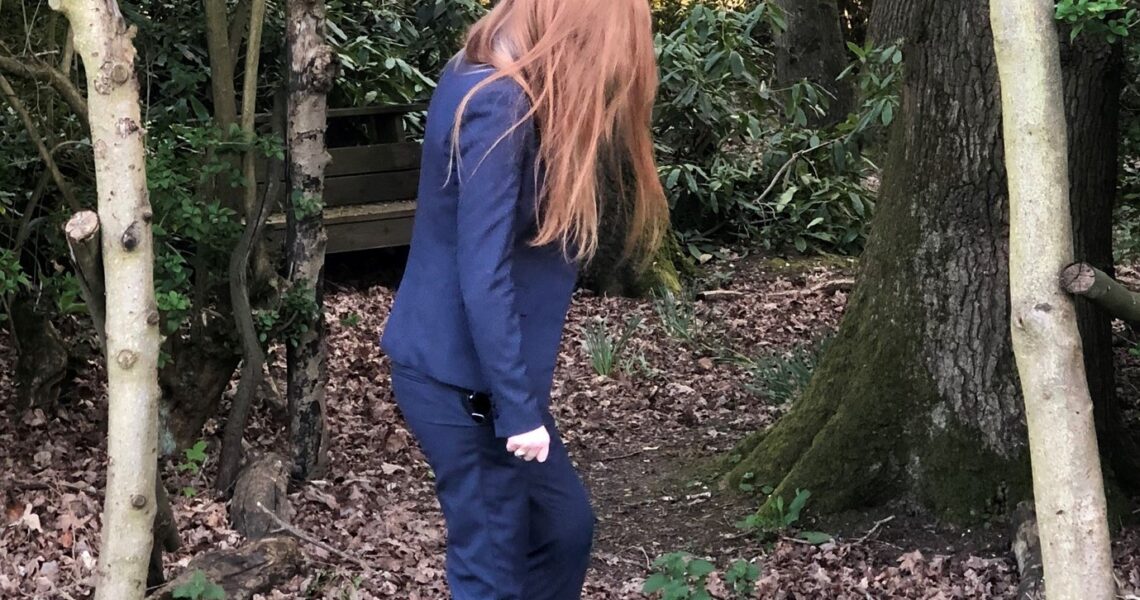Autism and being verbal
A common way to distinguish between autism needs is whether we are verbal or nonverbal. Now, I am verbal – when it comes to categorising me like that. However, it often feels like my verbal ability has been crammed in last minute. It’s like the wiring was rushed and isn’t quite connected properly. When pressure hits me, it’s the first thing to come undone.
The drop off of my verbal ability can happen one of two ways. When I become overloaded, especially if emotions and subjectivity are involved, I stutter and trip over my words. My mind becomes confused and can’t say what I am thinking. I get caught on my words and frustration builds as it becomes harder to get across what I am trying to say.
The other way is to go completely nonverbal. This is what happened last night. What caused me to spend an evening nonverbal? A chipped tooth. You would think it would take something huge to push a usually verbal autistic person to being involuntarily nonverbal. But the point is the little things can override an autistic brain. And how our brain responds to that input is very different to most people.
Three things happened as soon as I realised that I had lost a part of my tooth:
1. Sensory shock – My tongue now hit a sharp edge when I spoke, swallowed, anything. A permanent and instant sensory difference that I could do nothing about.
2. Routine change – How would I brush my teeth? I would need to go careful on that part. Something done on autopilot would now need thinking about and changing.
3. A lack of plan – It’s lockdown. Accessing dentists isn’t exactly simple. Would figuring that out mean phoning someone? How did you even do that in lockdown?
These three things combined in my mind to create a wall that I could not process. It feels like going into shock. I just stared as it all just sat there in my mind. It’s not like overload. It doesn’t bash at my brain the same way. It’s like sitting in a room and staring at something that is going to affect you but it’s behind a glass wall.
The sacrifice for shutting down and not processing what had happened was going nonverbal. It’s like my mind goes a little too far in what it shuts down. As well as putting distance between my mind and the impending problem – it removed my ability to talk.
I often choose not to talk. Being voluntarily nonverbal is a coping mechanism in places I can’t cope with talking. But to go involuntarily nonverbal is a very strange sensation as someone who can usually talk. Especially around people I don’t normally consider talking to a thing.
It took a while for me to even realise I had gone nonverbal. I sat and wondered how long it had been since I had spoken. I had automatically shifted to nods and shakes of the head, ‘mhmms’ and shrugs.
I wanted to speak. My partner would talk to me and I would think of a response but whatever part of my brain allows me to go from thoughts to speech, was gone. I willed myself to talk but could not. As someone who knows a fair bit about autism, I knew I was nonverbal as self-protection and just let it be. I knew I just needed time.
Later that evening my partner and I sat and watched Eastenders. I wanted to say a theory I had on the plot, but I couldn’t. An episode later and I did finally manage to say something. At that point it all clicked back, and I could talk normally again. I don’t know why I suddenly could. A sense of calm and distraction sat with my partner – maybe. Enough time had passed since the chipped tooth – maybe.
I don’t really understand the ins and outs of going nonverbal. But I do know it is a strange feeling that I can not control. Verbal communication is a strange part of my life. Sometimes it runs smoothly, other times it’s patchy and stuttery. And sometimes it’s just not there at all.
No textbook is going to say a chipped tooth could make an autistic person go nonverbal. My partner knew I was struggling after what happened and didn’t push me. There is no quick fix to an autistic mind in that position, we need time and understanding. She did however from a practical perspective look into how you access dentists in lockdown – as it was obvious I was unable (yet) to address the problem.
In that moment as my mind shut down there was nothing that she could have done to kickstart it again. That is why the best way to support autistic people, always, is patience and kindness. Nine times out of ten that is exactly what we need.
Today I woke up much more able to discuss the situation and figure out what to do. I just needed time.
Found this blog helpful? You can support my writing and say thanks by buying me a coffee 🙂
